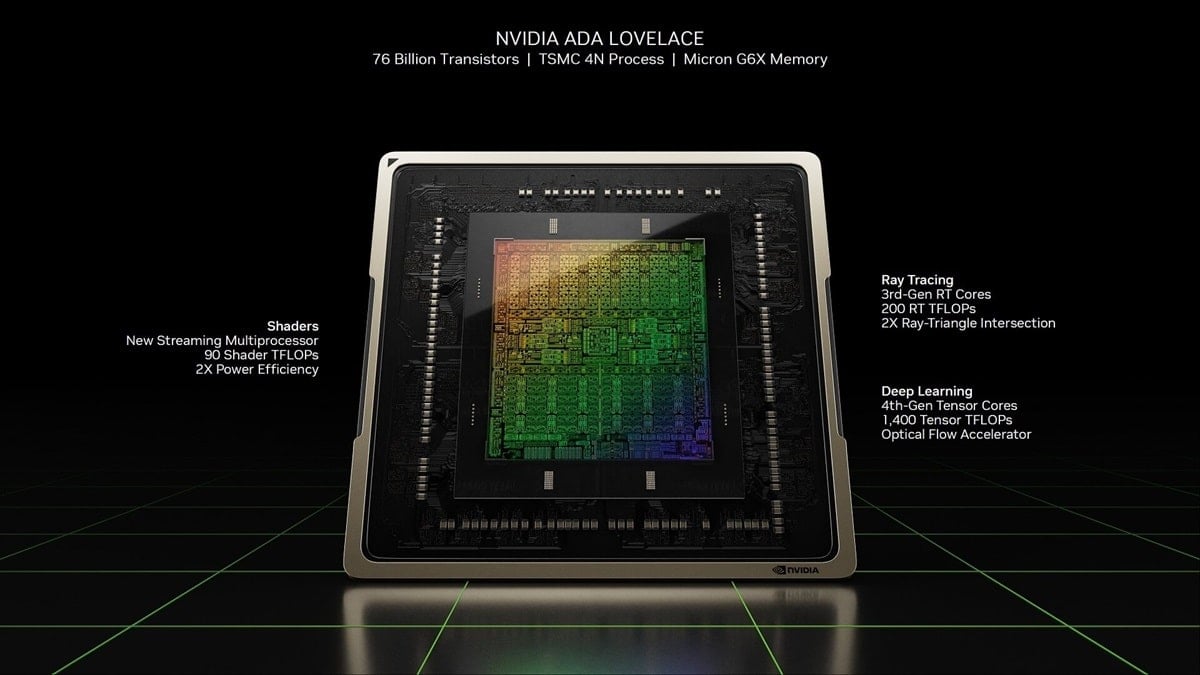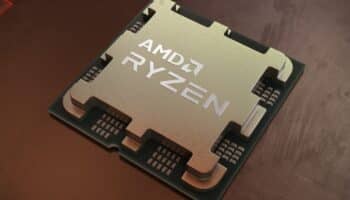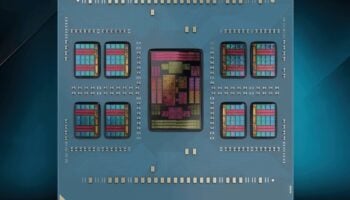The latest round of rumors provides further info on NVIDIA’s upcoming GeForce RTX 5090 graphics card. The Blackwell flagship is expected to feature the next-gen GDDR7 memory, 16 Gb (2 GB) chips clocked at 32 Gbps, to be more specific. For comparison, the RTX 4090 features 16Gb GDDR6X chips clocked at 21 Gbps. The RTX 5090 should retain the 16 Gb x12 memory configuration, with each chip connecting to four 8-bit channels (32-bit overall).
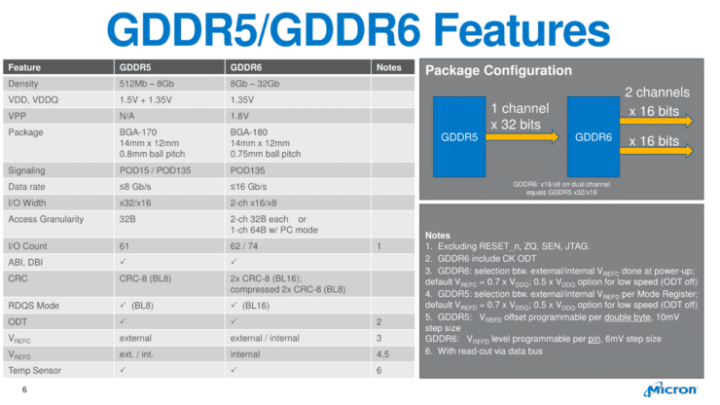
GDDR7 memory allows the doubling of memory chips using clamshell mode. This worked in GDDR6 by pairing each 16-bit memory channel with a memory chip (doubling capacity). In GDDR7, each memory chip consists of four 8-bit memory channels. Consequently, each die is connected to two 8-bit channels, doubling memory capacity to the same effect.
The GeForce RTX 5090 should achieve a 24 GB memory buffer using the standard configuration and 48 GB using clamshell mode. The bandwidth will get a 50% increase, rising from 1,008 GB/s to 1,536 GB/s, primarily due to the faster memory clocks (20 Gbps -> 32 Gbps).
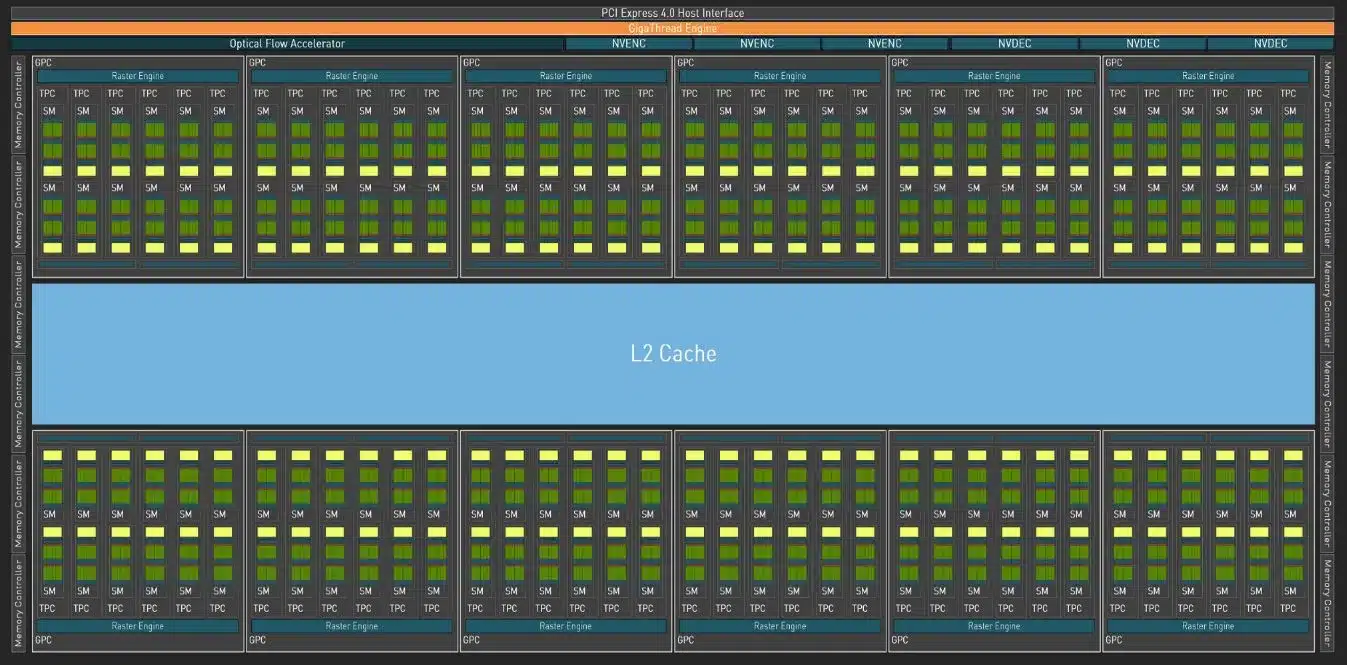
The RTX 5090 is expected to feature 11 or 11 and a half GPCs, up from the 10-and-a-half on the RTX 4090. This nets a core count of around 23,000 to 24,000 shaders, with one to one-and-a-half GPC disabled to improve yields. Reputed tipster kopite7kimi suggests that the GB203, the die powering the RTX 5080, may be limited to just 6 GPCs or 72 SMs. The result is a maximum core count of 9,216 shaders, down from 9,728 and 10,240 units on the RTX 4080 and 4080 Super, respectively.
This configuration would make the RTX 5090 at least 2x faster than the RTX 5080, a glaring and perhaps unreasonable deficit between the 80 and 90-class flagship. NVIDIA could adopt a 320-bit bus with an increased L2 cache for the RTX 5080 to reduce the deficit, but that’s just a guess. I suppose it’ll depend on how the Radeon RX 8800 XT performs. Team GeForce could always compensate with the 5080 Ti.
Further reading:
